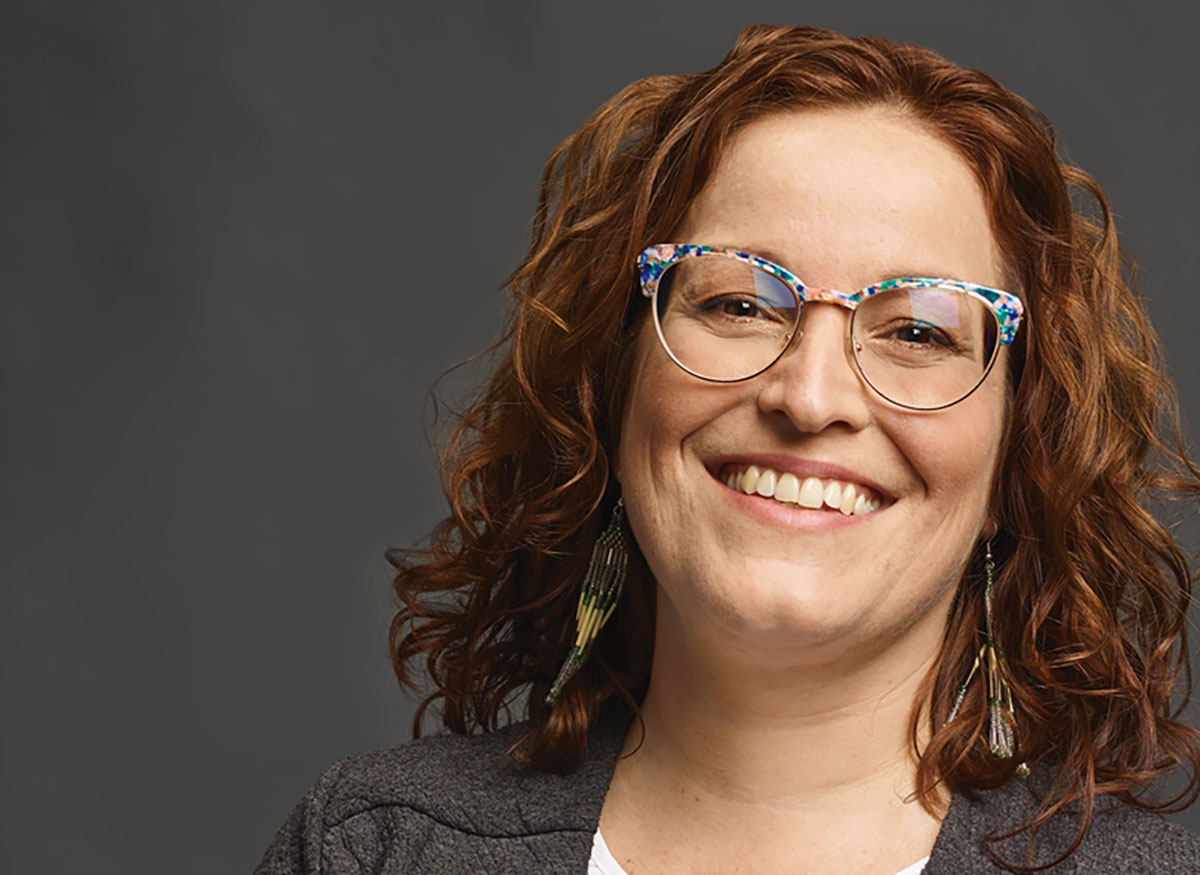Thwarting environmental contaminants
Mélanie Lemire and her team are working with northern and coastal populations to study how the environment affects their health. Research results are used for local action and to reduce global contaminant emissions.

Project architects
Mélanie Lemire
Assistant professor at the Department of Social and Preventive Medicine
Holder of the Nasivvik Research Chair in Ecosystem Approaches to Northern Health
Researcher in the Population Health and Optimal Health Practices division at CHU de Québec–Université Laval and at the Institute of Integrative Biology and Systems (IBIS)
Team
Students from various departments at UL and co-researchers from different institutions:
- Institut national de santé publique du Québec
- Université du Québec à Rimouski and à Montréal
- University of Ottawa
- Université de Montréal
- University of Guelph
Partners
- Human Health Assessment Group of the Arctic Monitoring and Assessment Programme
- Federal ministries (Indigenous and Northern Affairs Canada, Health Canada)
- Nunavik Regional Board of Health and Social Services and Nunavik Nutrition and Health Committee
- Direction régionale de santé publique de la Gaspésie-Îles-de-la-Madeleine
- First Nations of Quebec and Labrador Health and Social Services Commission
- Nunavik Research Centre, Makivik Corporation, Nunavik Marine Region Wildlife Board, and RNUK (Nunavik Hunting, Fishing and Trapping Association)
- Centre d’initiation à la recherche et d’aide au développement durable and Centre de recherche sur les milieux insulaires et maritimes
- Québec-Océan
Contaminant biomonitoring
Mélanie Lemire and her colleagues are studying the exposure of northern populations to environmental contaminants such as mercury and lead, and also to emerging contaminants. The team focuses primarily on pregnant women and children, who are particularly vulnerable to the adverse effects of contaminants. Researchers are also examining contaminant levels in local food and water and in other environments to better understand where contaminants come from and find ways to reduce exposure.
Environment, diet, and health
Dr. Lemire and her colleagues assess how certain nutrients in marine foods, such as selenoneine, help lessen the harmful effects of mercury in northern populations. Their projects also seek a better understanding of how climate change affects access to and the availability and quality of marine foods in the Arctic. Using this knowledge, the research team and its local and regional partners are building strategies to mitigate the impact of these changes on food security and health in the North.
From knowledge to action
The team is helping develop public health communication and action tools to share its results and promote local foods, while reducing exposure to contaminants in Nunavik and elsewhere in the North. Dr. Lemire and her colleagues are also working with several partners in the Lower Saint-Lawrence and Gaspé regions and Îles de la Madeleine to promote the consumption of food from the St. Lawrence River. In addition, they work with federal and international partners to reduce global emissions of contaminants.

Hearing a gunshot, a young Inuk runs towards the shore to see a beluga whale being hunted.

The team discovered a very high level of selenoneine in beluga mattaaq, a traditional Inuit delicacy.

First co-development workshop for the “Manger notre Saint-Laurent” eat local campaign in Îles de la Madeleine in September 2018.

Chef Johanne Vigneau concocted a grey seal tataki, with two-mackerel mayonnaise and seabeach sandwort for the co-development workshop.

Mélanie Lemire and Pierre Ayotte present the BriGHT project to hunters from the Nunavik Hunting, Fishing and Trapping Association (RNUK) in Salluit.
What's next
The environment in northern and coastal communities is changing rapidly. Dr. Lemire and her team will continue to innovate and partner with communities to develop new approaches and methodologies and better understand the complex links between the environment and child and adult health. Above all, Mélanie Lemire wants to mobilize stakeholders from various sectors to act together preserve ecosystems and the health of their inhabitants.
Nasivvik Research Chair in Ecosystem Approaches to Northern Health
Learn more about the Chair’s work.
+